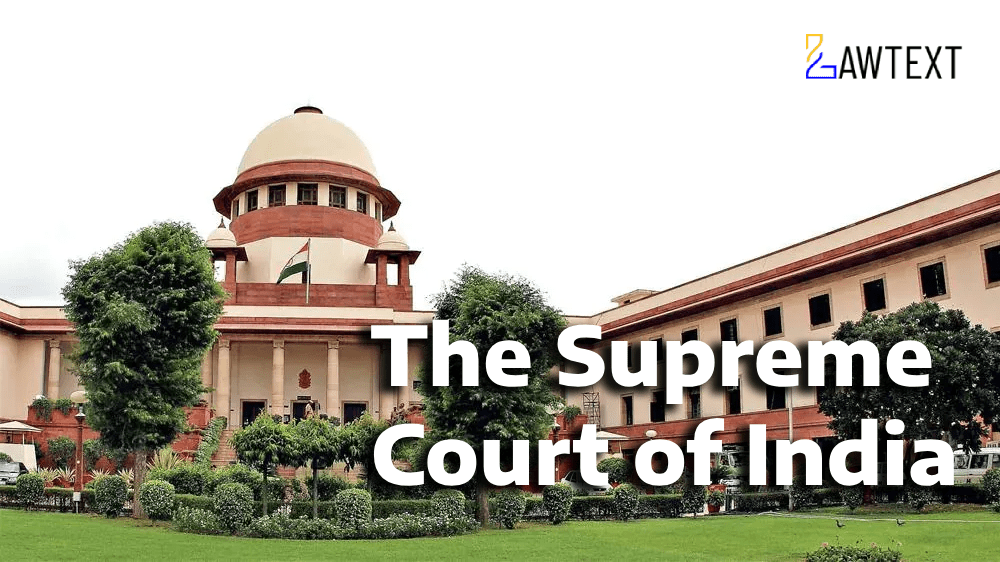Supreme Court Upholds Kerala HC's Decision Quashing Termination of Professor Despite Overstay of Leave Due to Health and COVID-19. Termination of services without proper procedure is invalid even if the employee overstayed sanctioned leave due to exceptional circumstances like health issues and pandemic.

CASE NOTE & SUMMARY
The Supreme Court dismissed the Special Leave Petition (SLP) filed by Kerala Agricultural University against the Kerala High Court's Division Bench judgment that quashed the termination of T.P. Murali, a former professor. The university had terminated Murali’s services for not returning to duty after a 20-year Leave Without Allowance (LWA). The High Court found that the university failed to follow the prescribed procedure before termination. Despite quashing the termination, the court did not order Murali’s reinstatement, as he had reached superannuation, but directed the university to disburse his pensionary benefits.
-
Background:
- T.P. Murali joined Kerala Agricultural University as an Assistant Professor in 1988.
- He availed of a 20-year Leave Without Allowance (LWA) from 1999 to 2019 to work in the USA.
- Murali did not return to duty on the expiry of the LWA in September 2019 due to health issues and the COVID-19 pandemic.
- Despite his efforts to rejoin, including emails and medical records, the university terminated his services for unauthorized absence.
-
University's Action:
- Kerala Agricultural University issued a charge memo against Murali for failing to return on time and initiated a departmental inquiry.
- The university terminated Murali’s services in July 2021 based on the inquiry committee’s findings.
-
Legal Proceedings:
- Murali challenged the termination before a Single Judge in the Kerala High Court, who upheld the university's decision.
- On appeal, the Division Bench quashed the termination, ruling that the university did not follow proper procedures under the Kerala Civil Services (Classification, Control, and Appeal) Rules, 1960.
- The High Court noted that Murali was genuinely prevented from rejoining due to health issues and the pandemic.
-
Supreme Court's Decision:
- The Supreme Court upheld the Division Bench’s judgment, emphasizing that the university failed to record prima facie satisfaction before initiating disciplinary proceedings, as required under Rule 15 of the Kerala Civil Services (Classification, Control, and Appeal) Rules, 1960.
- The court noted that statutory procedures must be followed strictly, and failure to do so renders the termination invalid.
- The Court did not order Murali’s reinstatement, as he had already reached the age of superannuation, but affirmed his entitlement to pensionary benefits.
Key Legal Provisions Discussed:
-
Rule 24A and Clause 6 of Appendix XIIA of Kerala Service Rules:
- Limits LWA to 20 years, with mandatory termination if the employee fails to return upon expiry of the leave.
-
Rule 15 of the Kerala Civil Services (Classification, Control, and Appeal) Rules, 1960:
- Specifies the procedure for imposing major penalties, including termination, and requires a show-cause notice and prima facie satisfaction before initiating disciplinary inquiries.
Ratio Decidendi:
- Failure to Follow Statutory Procedure: The university did not record prima facie satisfaction before initiating a departmental inquiry, violating Rule 15 of the Kerala Civil Services Rules, which mandates such a procedure before imposing major penalties like termination.
- Exceptional Circumstances: Murali's failure to return from leave was due to genuine and extraordinary circumstances, including health issues and the COVID-19 pandemic, which the courts acknowledged as bona fide reasons.
Thus, the termination was invalidated, though reinstatement was not possible due to his superannuation.
ISSUE OF CONSIDERATION
KERALA AGRICULTURAL UNIVERSITY & ANR. VERSUS T.P. MURALI @ MURALI THAVARA PANEN & ANR.
Citation: 2024 LawText (SC) (9) 41
Case Number: SPECIAL LEAVE PETITION (CIVIL) NO.20817 OF 2022
Date of Decision: 2024-09-04
Case Title: KERALA AGRICULTURAL UNIVERSITY & ANR. VERSUS T.P. MURALI @ MURALI THAVARA PANEN & ANR.
Before Judge: (PAMIDIGHANTAM SRI NARASIMHA J. , PANKAJ MITHAL J.)
Appellant: KERALA AGRICULTURAL UNIVERSITY & ANR.
Respondent: T.P. MURALI @ MURALI THAVARA PANEN & ANR.

